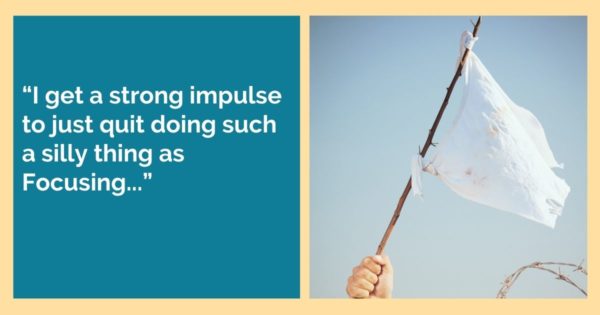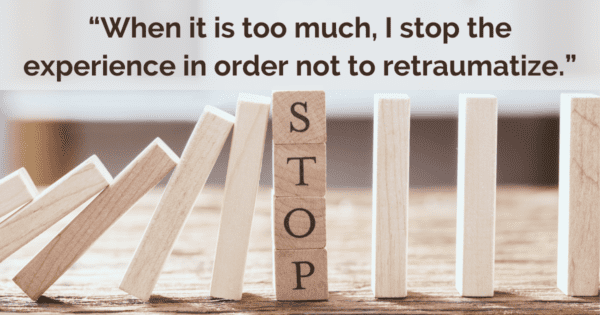“The sword was screaming at her, ‘Take me out!'”
Iain writes:
I was asked by a group of four people to come and tell them about Focusing. I explained a little of what Focusing was about for me and we did some little exercises and then one longer 15 minute session where I guided them in, and back out at the end. One woman then shared that she had a strong image of a sword stuck into her shoulder, and it was screaming at her “Take me out!”. She had felt drawn to do that, but remembered her instructions to listen to and not to act from a part, so she had gotten a bit lost. What should she have done, she asked.
There wasn’t time to do a little session with her, so I replied that if I had been companioning her I imagined that I would have suggested letting that “sword” part know that “you really hear that it wants to be taken out, that it’s desperate to get out” and then just to sit with what came next. She seemed disappointed that it wasn’t “OK” to take it out. So my question is would it ever be OK, within a session, to act on what a part wants/needs to happen? Or as a companion ‘should’ I always support the focuser to be with the part?
Dear Iain,
Very interesting! Do we give our parts what they ask for? The guideline that Barbara McGavin and I have been following is that when a part asks for something for itself, then we (Self-in-Presence) can give it.
The reason why you may have thought that that wasn’t a recommended practice is that we do feel that Self-in-Presence shouldn’t act on a part. But specifically that is a warning against acting on a part unilaterally.
Notice the difference between the sword screaming “Take me out!” and another part saying, “You should take that sword out.”
How to give a part of us what it asks for
Another example of a Focusing session where you might not be sure whether to take action is the appearance of a sad, lonely child part inside. You might feel the impulse to pick up the child, hold it, cuddle it. But where does that impulse come from? Does it comes from my whole self, or does it come from another part that is impatient to fix and make things better, possibly skipping over something that needs attention? It may be hard to tell.
So what we would suggest is to ask the child. If the wanting to be picked up and held comes from the child, it is OK to do it.
And in order not to push or assume anything, we usually don’t ask, “Would you like to be picked up?” but rather, “What kind of contact would you like from me right now?”
As Self-in-Presence we stay in the role of attentive listener who is able and willing to give something… if asked.







